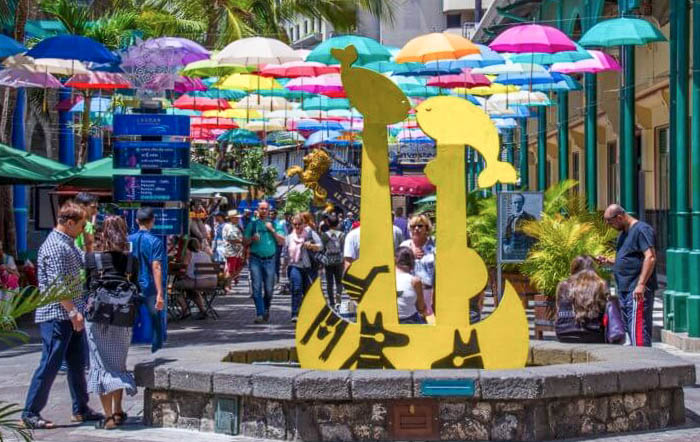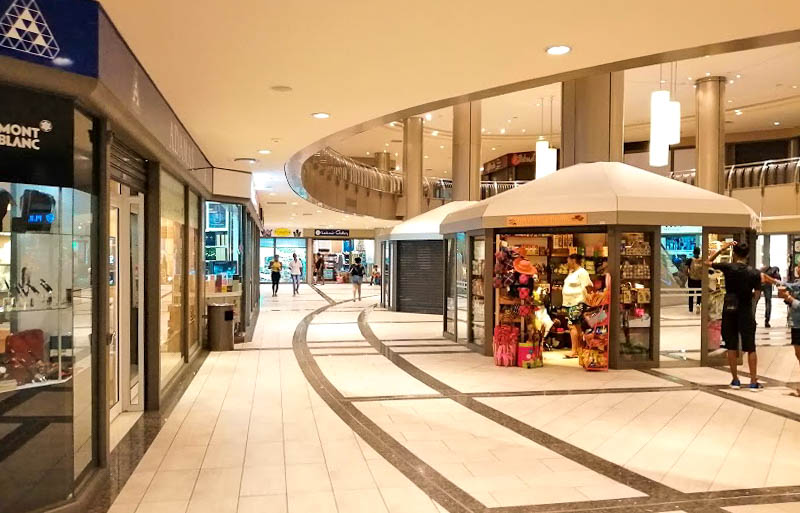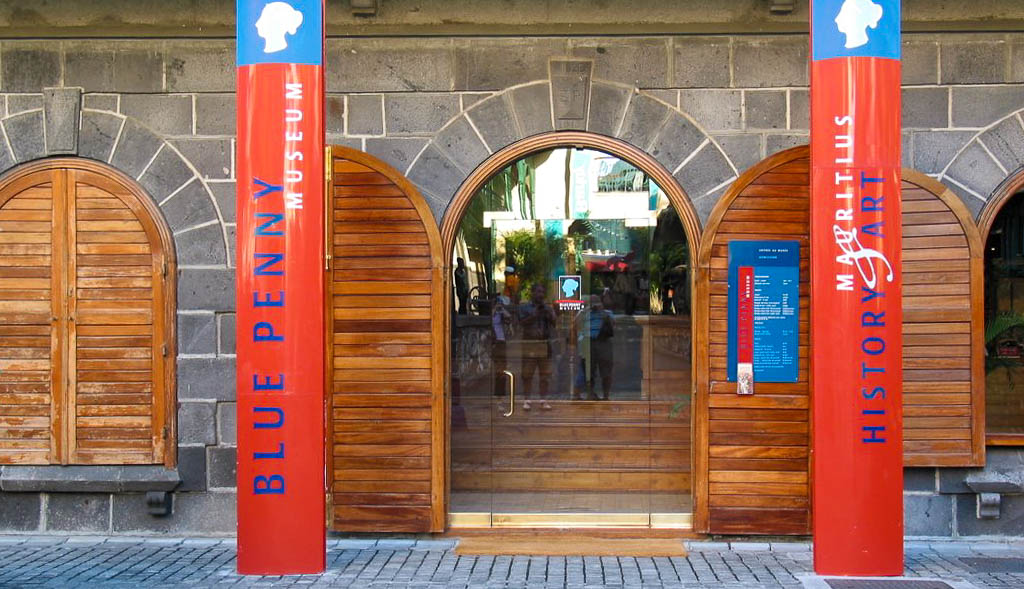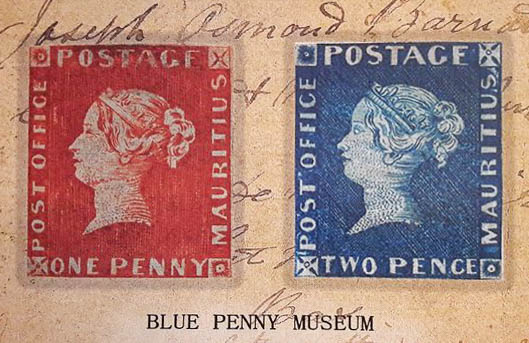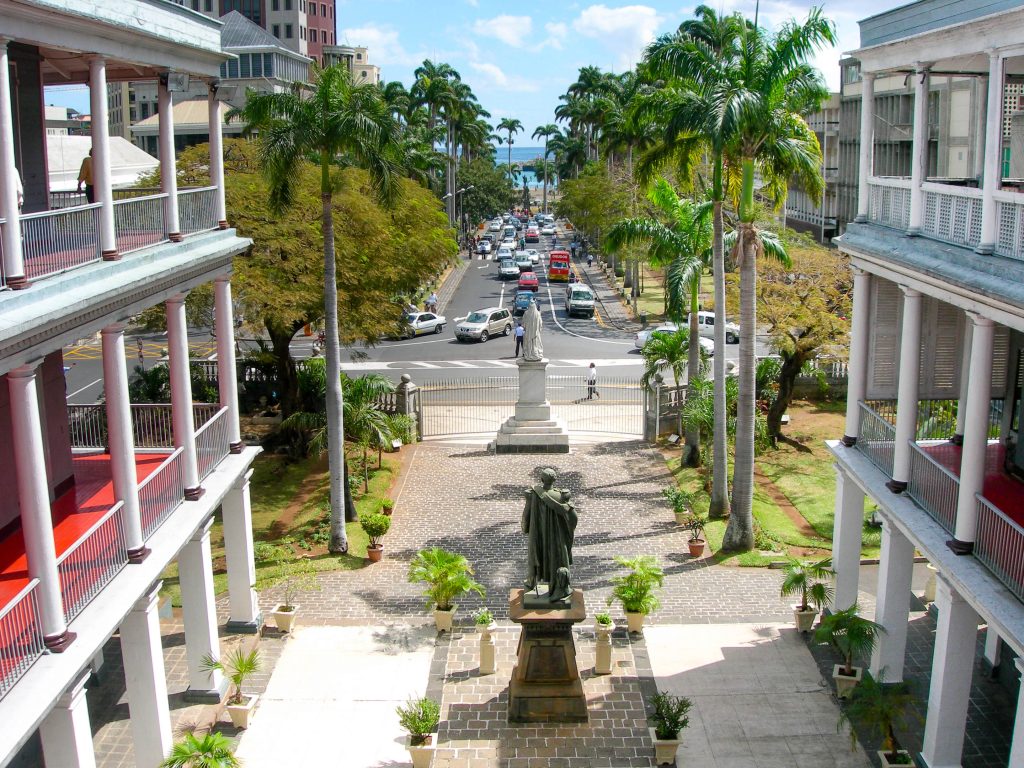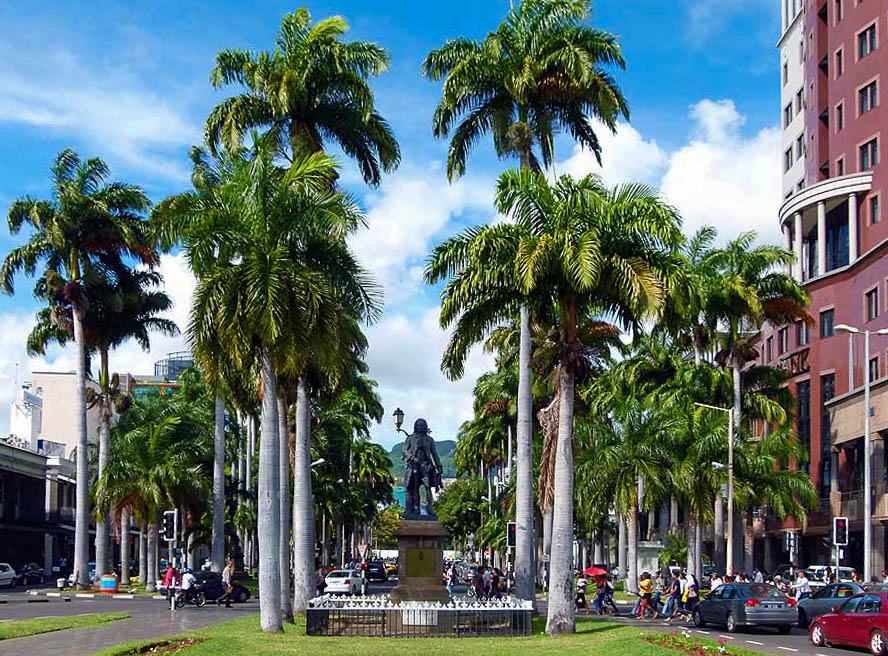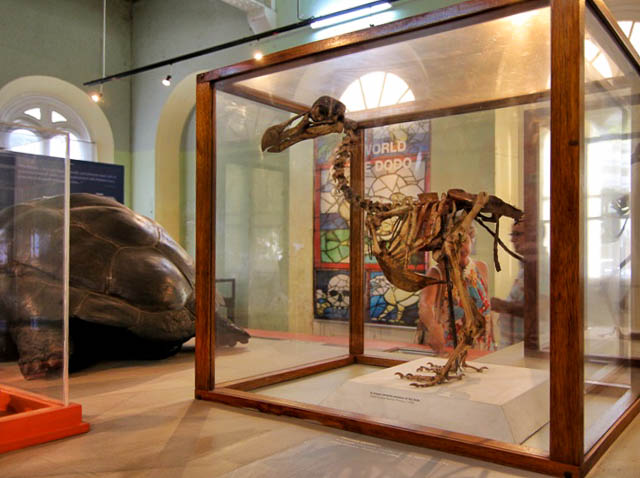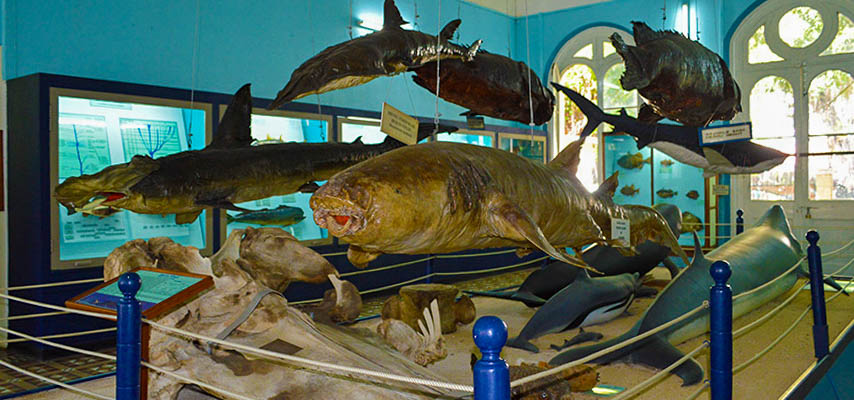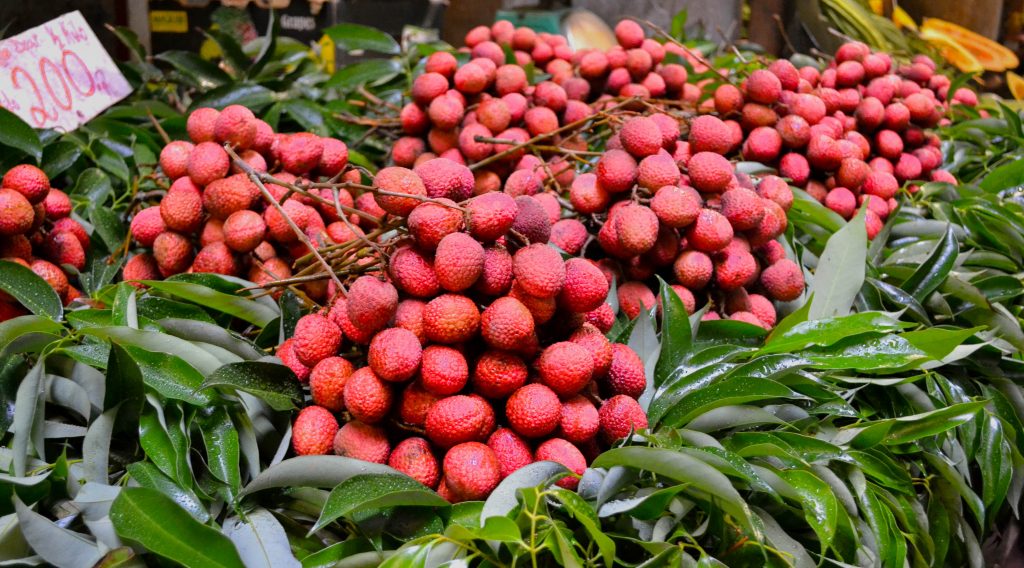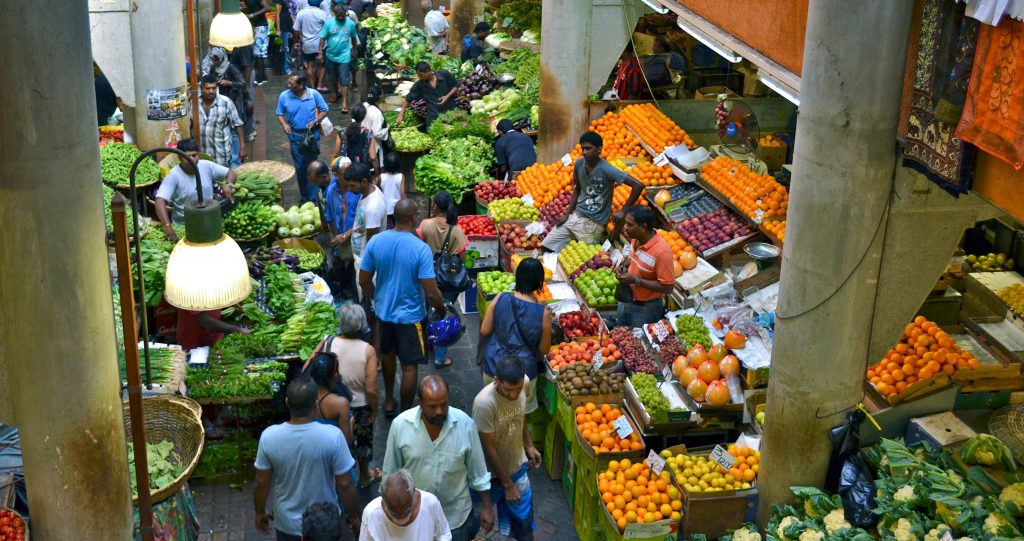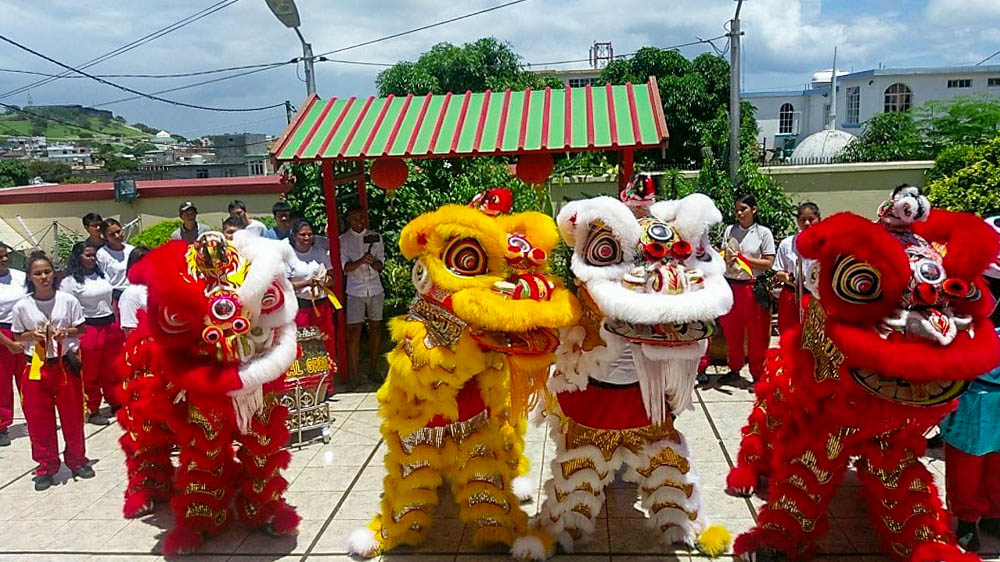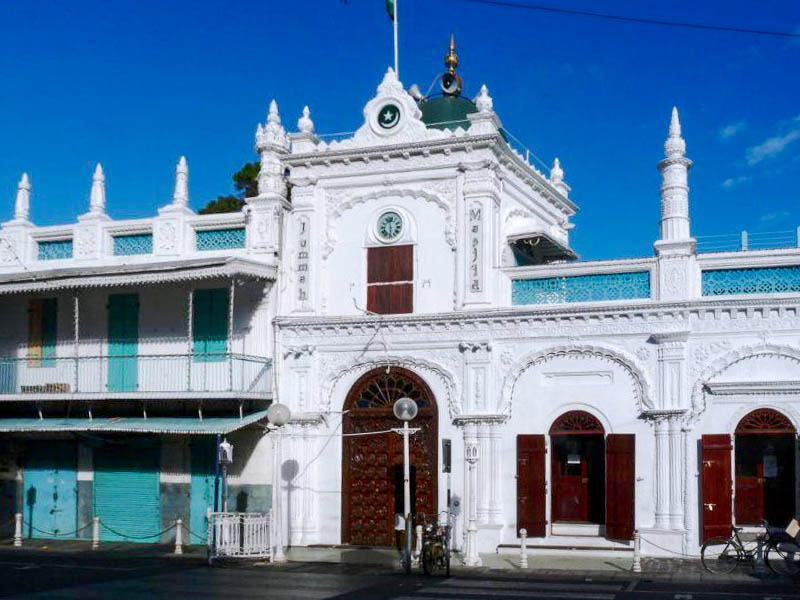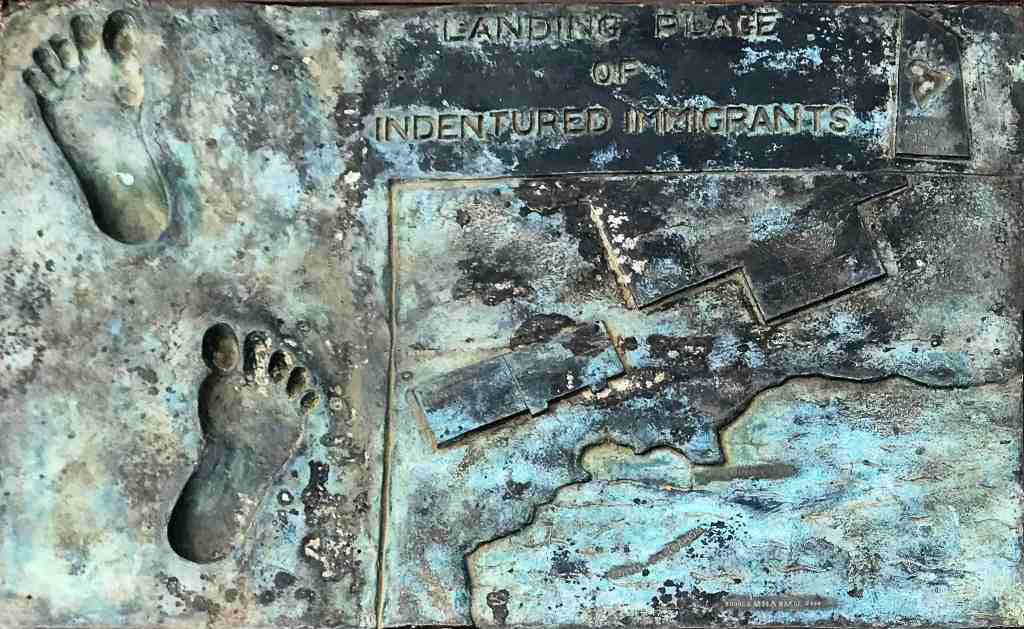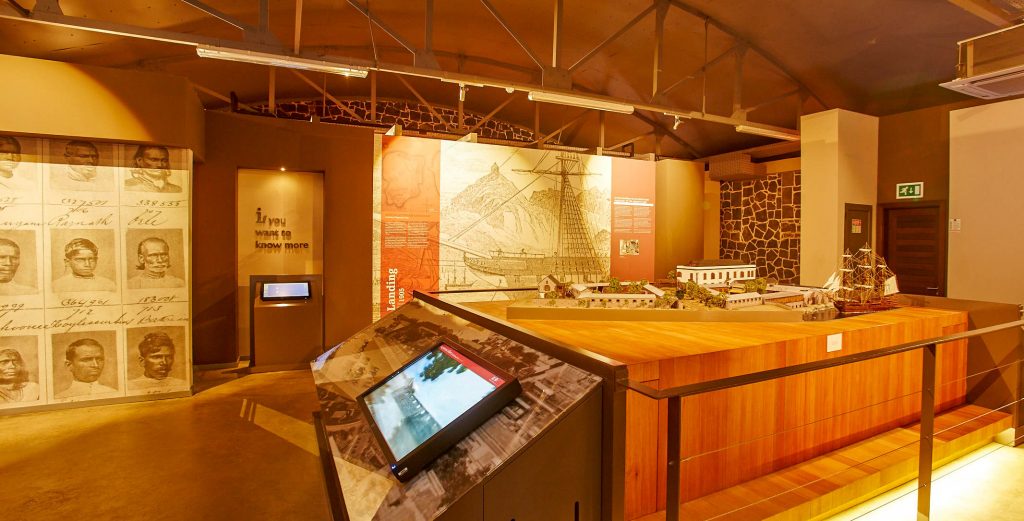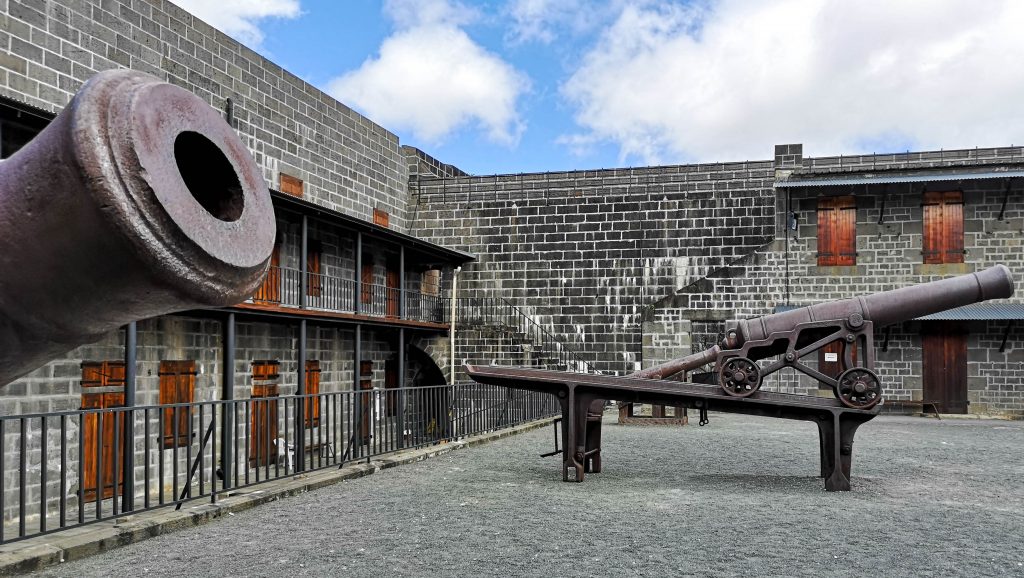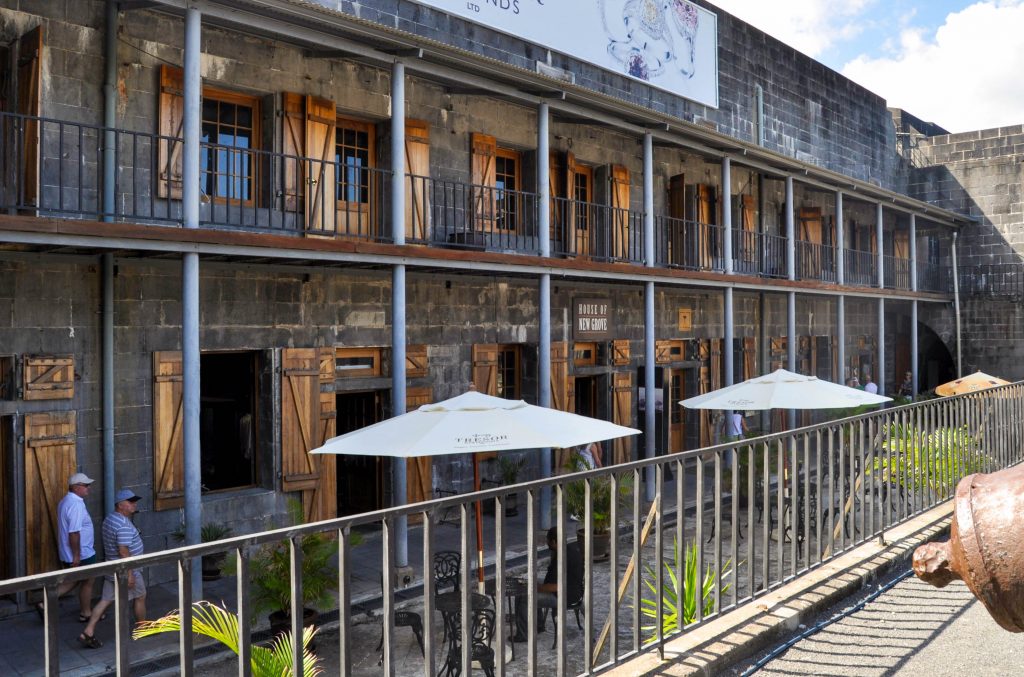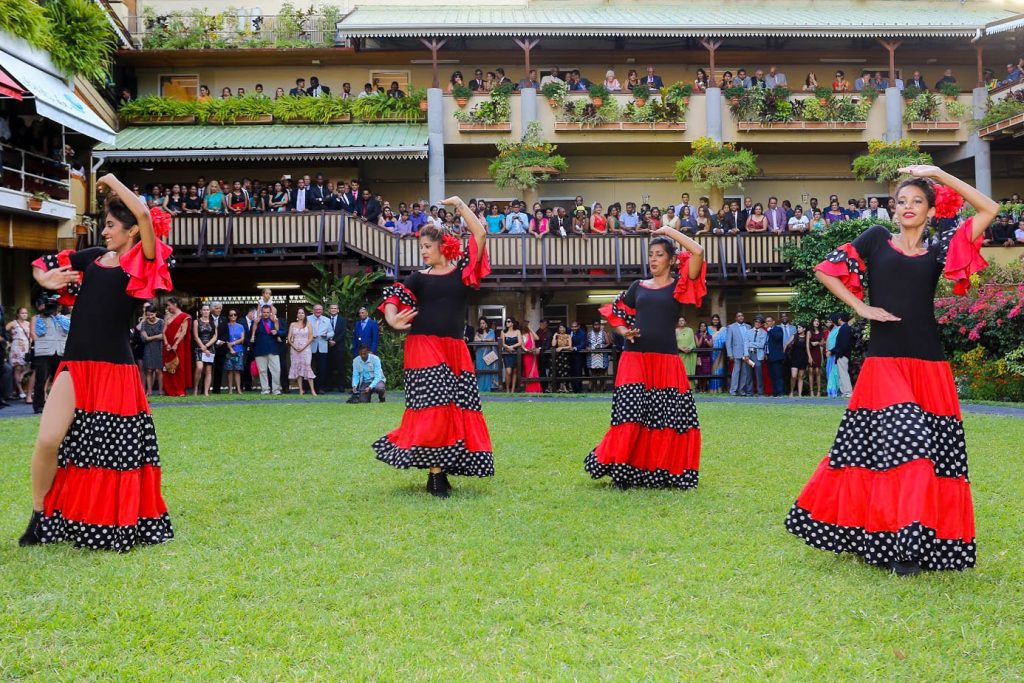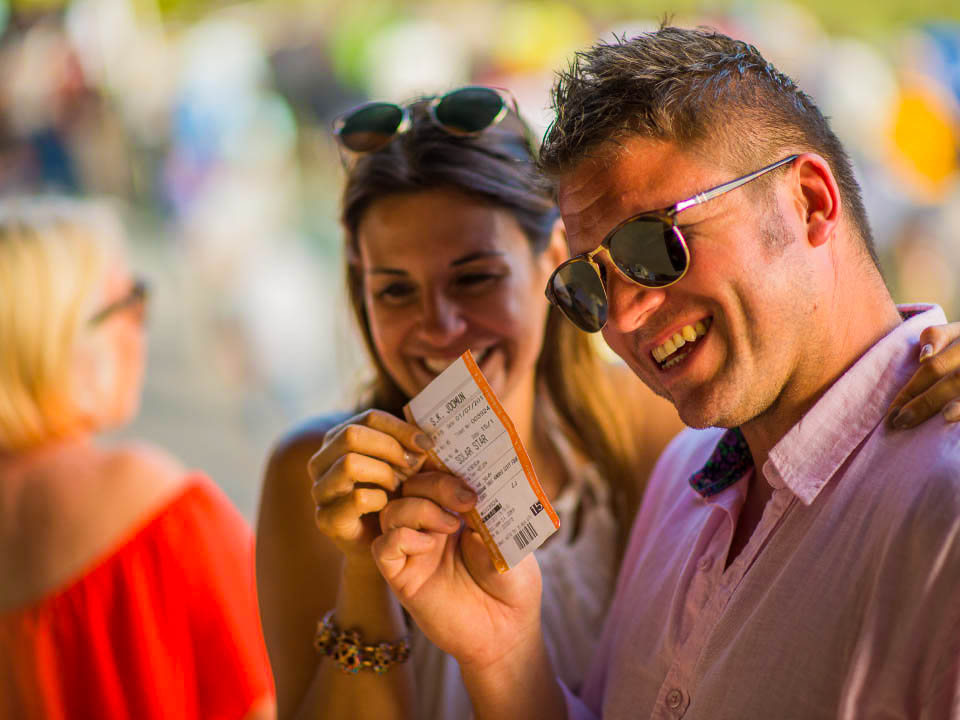CAPITAL CITY OF MAURITIUS
Taste the flavours of Mauritian street-food, visit the colourful market, stroll through charmingly shabby streets, visit museums, and meet the population. No matter when you visit, Port-Louis will touch you.
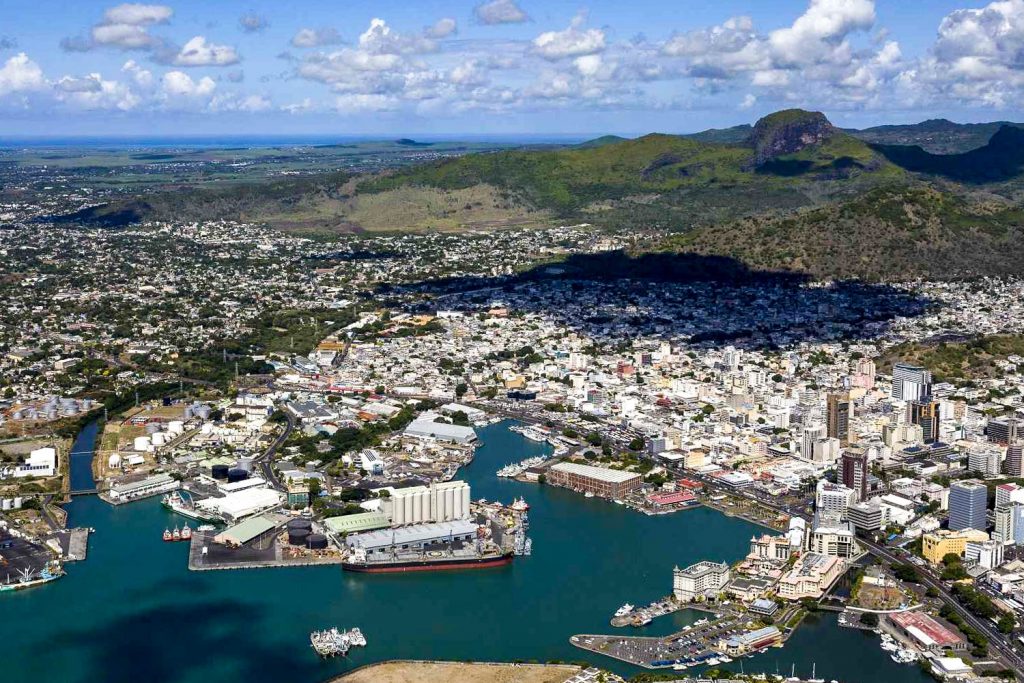
Port-Louis is a cultural melting pot, and a city where tradition and the modern live side-by-side.
Founded by French Governor Bertrand-François Mahé de Labourdonnais in 1735, the city is the economic hub of the island and is very lively with commerce and trade during the day. A tour in the capital is a must during your stay in Mauritius.
Caudan waterfront
Le Caudan Waterfront offers commercial activities and entertainment. On top of being a must for shopping, Le Caudan Waterfront is also a business centre, a melting pot for local artists and the favourite meeting place for gastronomes, tourists and locals looking for leisure and entertainment.
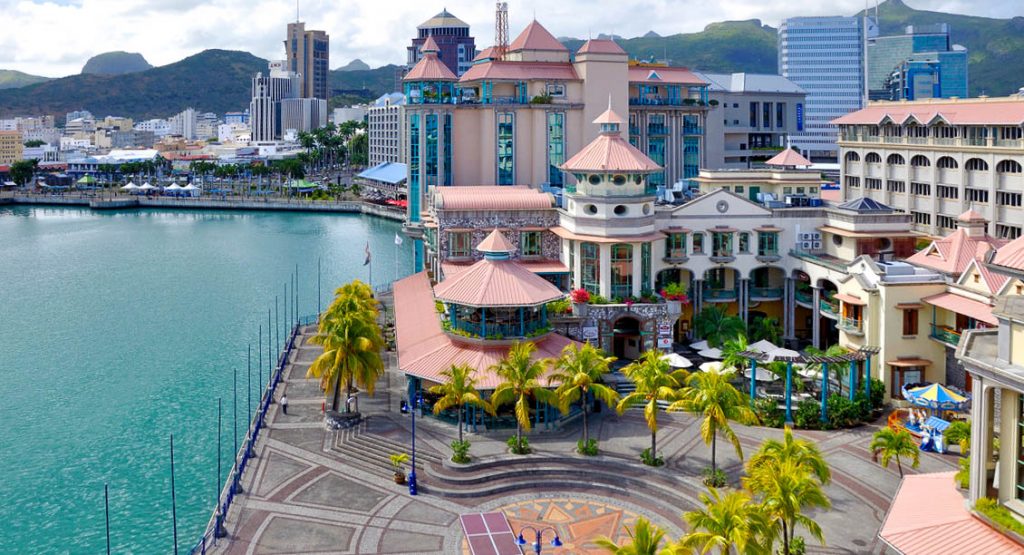
There are many shops, banking facilities, casinos, restaurants, a marina and a five star hotel, Le Labourdonnais. Paid parking is easy and convenient, and the waterfront can also be accessed from the city via underground tunnel.
Blue Penny Museum
The Blue Penny Museum displays a precious heritage collection and shows the rich history of the island. It offers an expedition through the colonial period and the island’s economic development over the years.
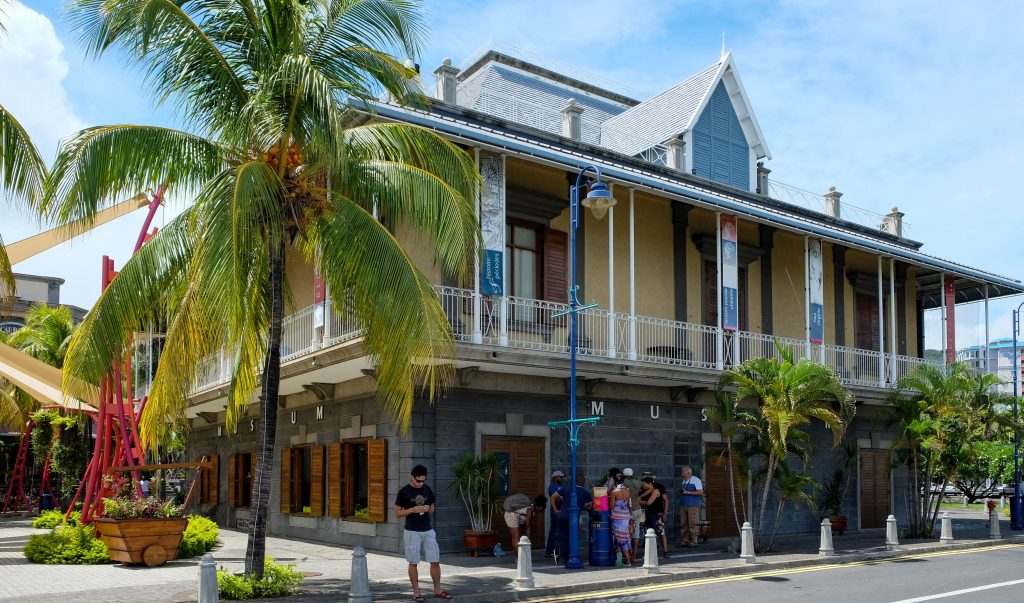
The museum displays two famous stamps which datie back to 1847 and are considered two of the most precious items of worldwide philately.
Other treasures include: old marine maps, paintings, sculptures, engravings and documents that demonstrate the richness of Mauritian history and culture.
The Government House and Place D’armes
One of the oldest buildings from the French colonial days is the Government House. Construction began under the first French governors of the island, Nicolas de Maupin (1729 – 1735) and Mahé de Labourdonnais (1735 – 1746) and was the residence of the latter. It served as the venue for the Governor’s official business, and hosted many state receptions.
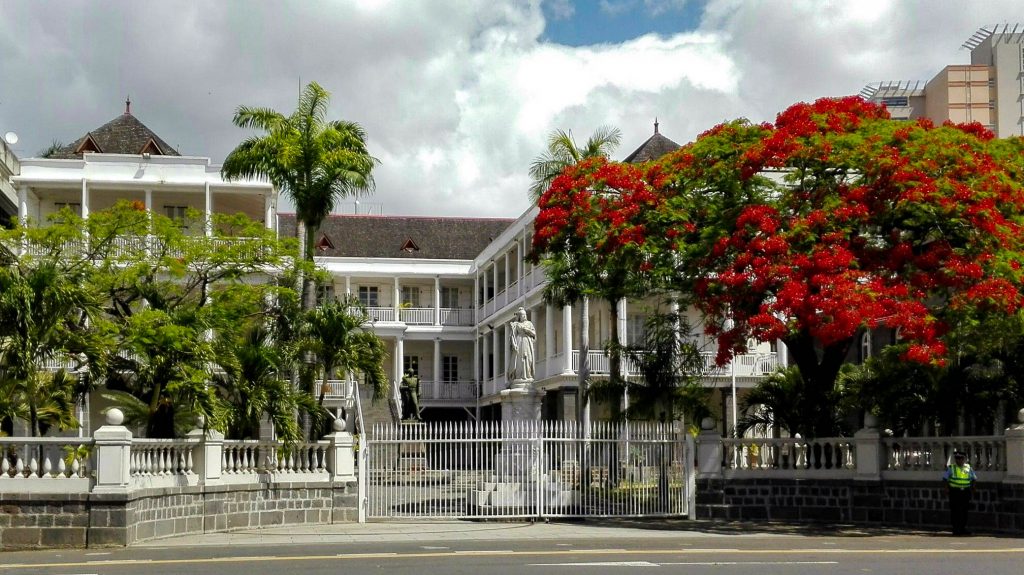
Originally the building consisted of a wooden compartment covered with palm leaves and in time this structure was replaced by a one-storey building during the times of Nicolas de Maupin. Mahé de Labourdonnais later converted this part into a building of a larger surface area at the ground floor in 1738. The building was then named Hôtel du Gouvernement. With time, under the French and the British colonial regime, the building knew even more changes and additions which gave it the form it has today.
National History Museum of Port Louis
When in Port Louis, you cannot miss the Mauritius Natural History Museum. It is located on the ground floor of the Mauritius Institute which was established by Governor Sir George Ferguson Bowen and built around 1880.
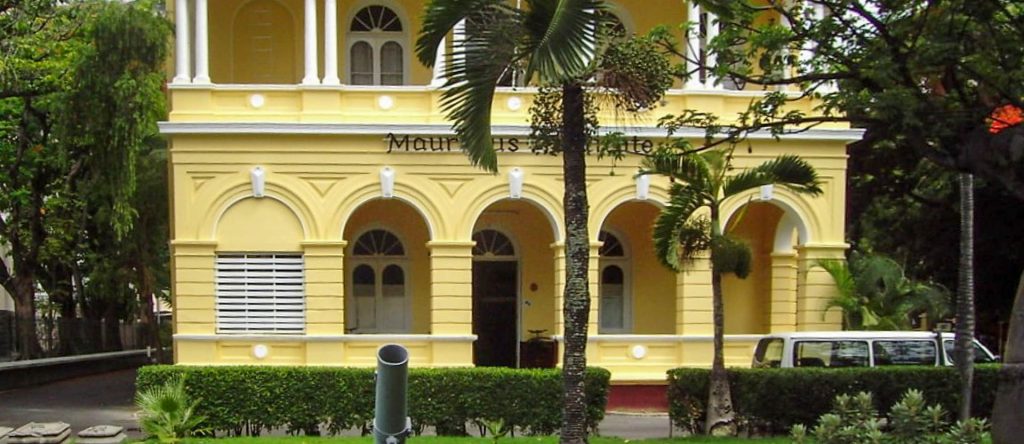
The Mauritius Natural History Museum exhibits, amongst other displays, the collection of two naturalists – Julien Desjardins and Louis Bouton. The collection was formerly exposed in the Desjardins Museum which opened its door in 1842 and was later transferred to the Mauritius Institute in 1885.
Central Market of Port Louis
The central market of Port Louis is one of the oldest sites on the island, and date back from than 200 years. Whatever the time of year, the market on Queen Street near the Central Bus Station is open every day. Prized by Mauritians, there are fresh fruits and vegetables in abundance throughout the year.
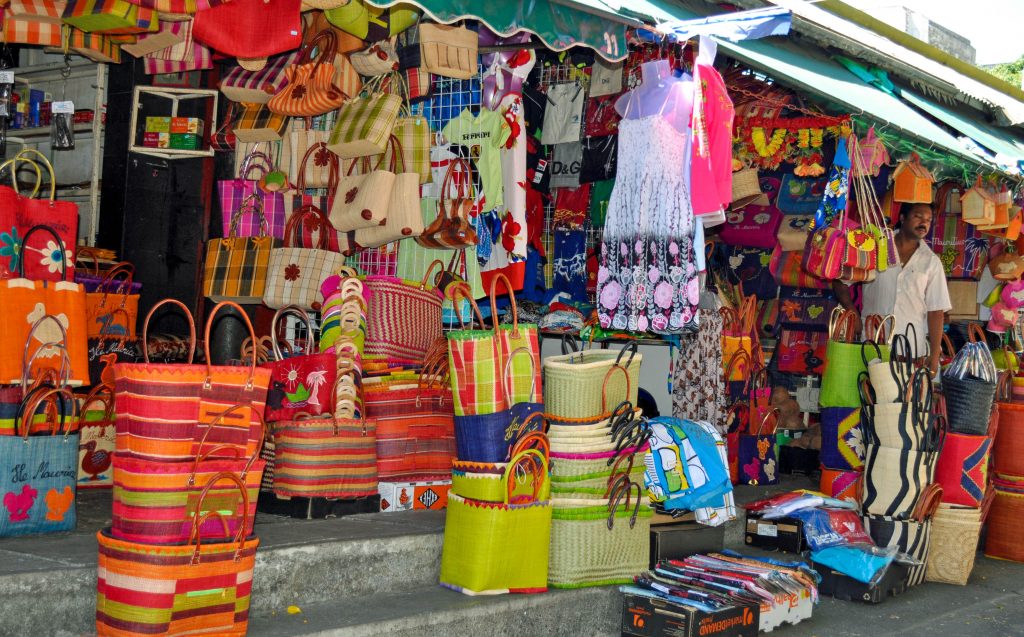
The Port Louis Central Market is right next to Immigration square, better known by locals as “la gare du nord”. It is preferable to visit early in the morning to admire the stalls of fruits and vegetables leaving exhilarating and spicy perfumes.
Chinatown and The Jummah Mosque
In 1940 a number of Chinese immigrants set foot in Mauritius in search of trade business under British rule. They started settling around Royal Road, in the heart of Port Louis and this is how Chinatown took shape.
The area between the two ‘friendship gates’ on Royal St forms the centre of the city’s Chinatown.
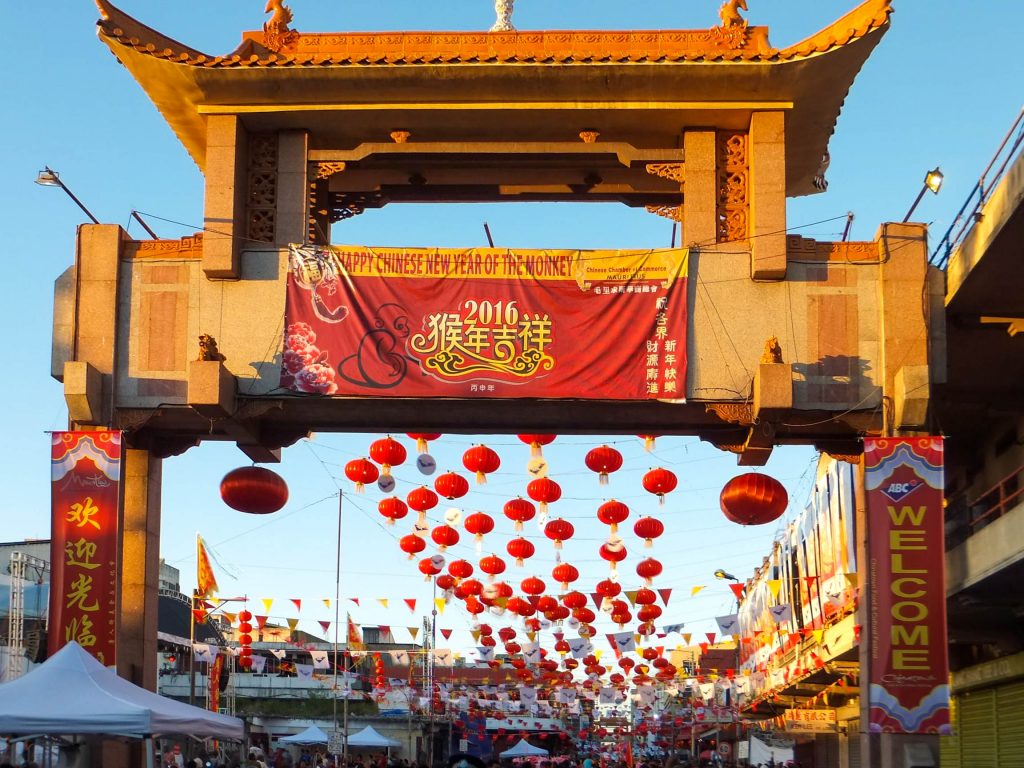
The Jummah Mosque dates from the 1850s and combines Indian, Creole and Islamic architecture. It houses the remains of Jamal Shah in a marble tomb next to the mosque.
Aapravasi Ghat
Aapravasi Ghat dates from 1834. It is a UNESCO World Heritage Site and holds an important place in the history of Mauritius.
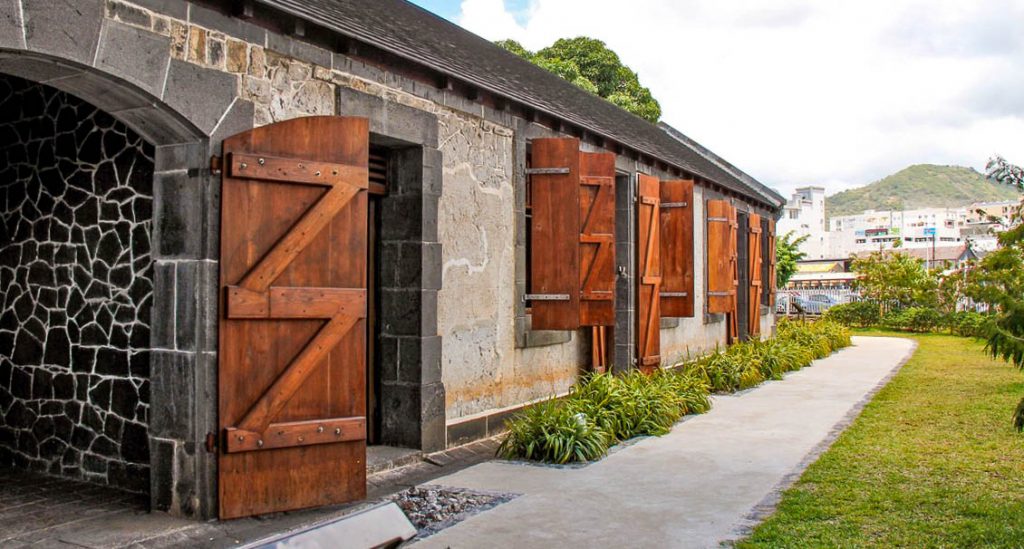
Aapravasi Ghat served as a place of the immigrants and labourers who were brought from various other colonies. Although the majority of the place is damaged, one can witness the remaining ruins which are not only beautiful but hold stories of different cultural and historical backgrounds.
Citadel Fort Adelaide
Citadel Fort, popularly known as Adelaide Fort was named after the wife of William II. The port was named when British held land in captivity in Port Louis.
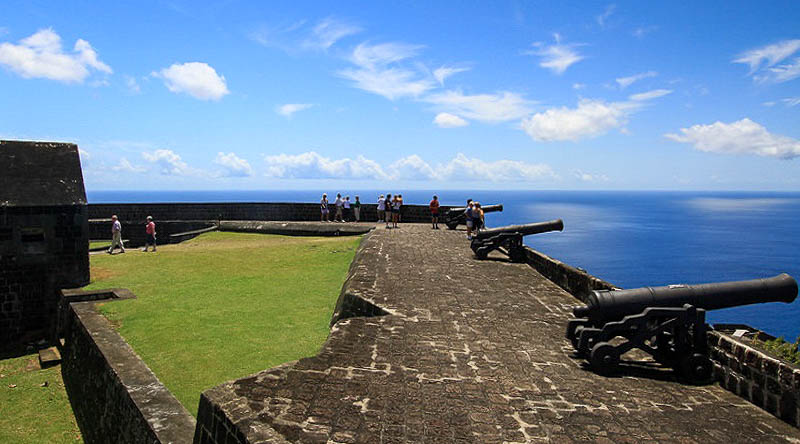
The Citadel fort has been constructed in Moorish style with rectangular blocks. All arches are horseshoe shaped.
Champ de Mars Racecourse
Inaugurated in 1812, The Mauritius Turf Club is the oldest horse-racing club in the Southern Hemisphere and the second oldest in the world.
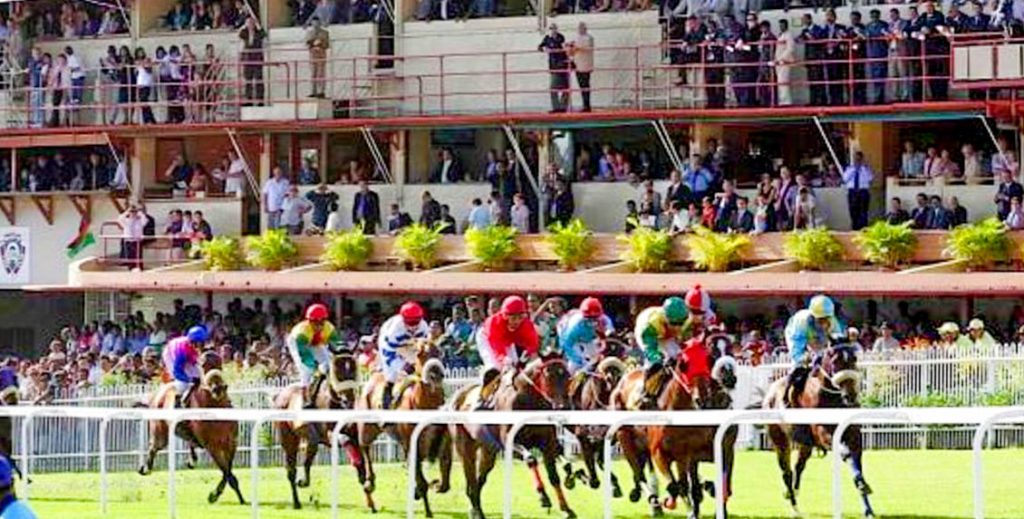
The Crown Lodge includes the Mauritius Turf Club VIP Balcony and has direct views on thee presentation ring where you can view your favourite horse in paddock.
If you are crazy about horse racing then Mauritius is the place to be. It can gather all the people of Mauritius in a single place. The horse race takes place every Saturday during the season.

